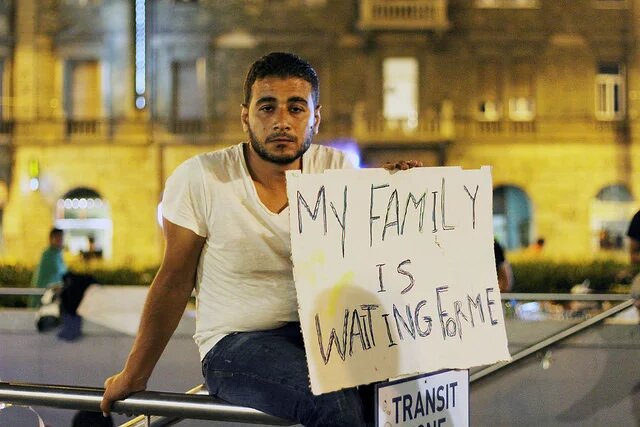
For Europe, the current refugee crisis presents a two-fold challenge: Will we uphold our humanitarian values, that is, do we view the refugees as people in need and with a right to a safe haven? And will the EU, in the face of this challenge, act as one – or will national selfishness erode European unity?
I have been following the events of the last few days while attending an international conference on democracy in Prague – and I am aghast: Europe is in chaos. The German government is flip-flopping; the policy of open borders within the EU, as defined by the Schengen Agreement, is on the rocks; and Europe’s Ministers of the Interior are haggling over quotas, even though it is obvious that they are hardly more than symbolic and present no sustainable solution to the refugee crisis. Chancellor Merkel, instead of addressing the German people and explaining her policies, is hiding behind her clumsy Minister of the Interior who gives conflicting statements on TV. Does the German government really intend to close its borders? Or is its aim to pressure other European governments into accepting a quota? Is the aim to reinstate the disastrous ‘safe third country’ rule (as defined by the Dublin Convention), long since swept aside by reality? What is the strategy of Chancellor Merkel and Vice Chancellor Gabriel, and what European solution do they pursue? Maneuvering will only exacerbate the humanitarian tragedy and further increase the centrifugal forces ripping apart the European Union.
All those who aim to consolidate the EU in face of the present crisis will have to address two objectives at once – effective controls at the external borders of the European Union, and the legal entrance to Europe for refugees from war-torn countries. To play off one issue against the other would be foolish. Sealing off our borders would be cruel and deluded; opening the borders to each and every individual would overtax our capacities. We will have to find a way between Scylla and Charybdis.
For this, short-term, unconventional action is needed, including reception centers outside the EU’s borders, where refugees can be registered and redistributed in accordance with the Convention relating to the Status of Refugees (here, a quota would be in order), as well as substantial investment to improve the living conditions of refugees in camps in Turkey, Lebanon, and Jordan and, in addition, greater support for EU border states, especially Greece. To complement these efforts, the West should get back on its feet and start an UN-initiative to establish a no-fly-zone and a safe haven for civilians in Syria itself. If we want to find a solution to the refugee problem, we have to address its root cause.
Without a comprehensive European strategy we will not be able to cope with the crisis. It is high time to convene a summit of the EU heads of government – a summit that will have to sit until a consensus has been found.